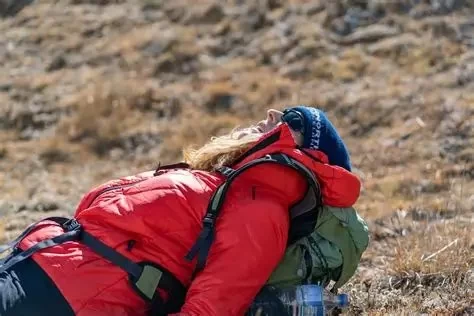Learn how to prepare for altitude sickness during mountain camping with expert tips on acclimatization, hydration, and safety. Discover real stories, prevention strategies, and recommendations from Pine Cliff Resort.

- 1 - why-altitude-sickness-is-a-serious-concern
- 2 - understanding-how-altitude-affects-the-body
- 3 - common-symptoms-you-should-never-ignore
- 4 - real-life-cases-of-altitude-sickness-during-camping
- 5 - practical-strategies-to-prepare-before-your-trip
- 6 - smart-on-site-practices-during-mountain-camping
- 7 - how-to-handle-altitude-sickness-if-it-occurs
- 8 - expert-recommendations-and-pine-cliff-resort
Why Altitude Sickness is a Serious Concern
For many outdoor enthusiasts, mountain camping promises breathtaking views and an escape from daily life. But it also carries risks, the most common being altitude sickness. Understanding how to prepare for altitude sickness during mountain camping can be the difference between an exhilarating adventure and a dangerous medical emergency. Ignoring the warning signs often results in rapid health decline, which is why preparation is not optional—it’s essential.
Understanding How Altitude Affects the Body
At higher elevations, the air becomes thinner, meaning less oxygen reaches your bloodstream. This forces your body to work harder to function normally. When camping at altitudes above 8,000 feet, even fit individuals can feel the impact: shortness of breath, fatigue, and headaches. Learning about acclimatization—allowing your body to gradually adjust to lower oxygen levels—is the cornerstone of safe mountain camping. This knowledge equips campers with tools to enjoy their trips without compromising health.
Common Symptoms You Should Never Ignore
Altitude sickness can start with mild symptoms like dizziness or nausea, but in severe cases, it can progress to confusion, inability to walk, or fluid buildup in the lungs. Recognizing these signs early is crucial. Campers should treat persistent headaches, vomiting, or shortness of breath as red flags. Being able to identify these symptoms ensures you can take action before the situation escalates.
Real-Life Cases of Altitude Sickness During Camping
One hiker’s story illustrates the danger: while camping in Colorado’s Rockies, he ignored a pounding headache and shortness of breath, assuming it was fatigue. By nightfall, his condition worsened to confusion and chest tightness, forcing an emergency evacuation. Stories like his serve as reminders that altitude sickness doesn’t discriminate—it affects seasoned athletes and casual campers alike. Such real cases highlight why preparing for altitude sickness during mountain camping should be part of every trip plan.
Practical Strategies to Prepare Before Your Trip
Preparation starts long before setting up your tent. Experts recommend spending a few days at a moderate altitude before ascending to higher elevations. This gradual acclimatization helps your body adjust. Staying well-hydrated, avoiding alcohol, and ensuring proper nutrition are also critical. Some campers consult physicians about preventive medications that reduce the risk of altitude sickness. By building these steps into your plan, you minimize risks while maximizing enjoyment.
Smart On-Site Practices During Mountain Camping
Once you arrive at your campsite, pacing is key. Avoid strenuous activity immediately after ascending, and give your body time to adapt. Sleep at lower elevations whenever possible, and save intense hikes for after acclimatization. Carrying portable oxygen or using trekking poles can also ease the strain on your body. Campers who remain mindful of their limits are more likely to enjoy the adventure safely.
How to Handle Altitude Sickness if It Occurs
If symptoms develop, the best response is to stop ascending and rest. In many cases, descending even a few hundred feet can bring relief. Supplemental oxygen, over-the-counter pain relievers, and hydration also help reduce discomfort. Severe cases require immediate descent and medical attention. The most important step is not to ignore the signs—your body is signaling that it needs relief from the stress of altitude.
Expert Recommendations and Pine Cliff Resort
Experts agree that knowledge and preparation are the best defenses against altitude sickness. At Pine Cliff Resort, we encourage campers to combine safety practices with adventure planning. Whether you need gear recommendations, guidance on acclimatization, or safe campsite suggestions, professional resources can make all the difference. Preparing wisely ensures that mountain camping remains a rewarding, memorable experience rather than a health emergency.
Ultimately, learning how to prepare for altitude sickness during mountain camping means respecting your body’s limits, listening to its signals, and making smart choices. With the right approach, you can enjoy the beauty of the mountains while staying safe and healthy.
Avondale Lake
1405 County Hwy 20, Avon, IL 61415, USA
Visit Location PageBeaver Lake Day Use Area/ Fishing Site
Co Rd 858, Cimarron, CO 81220, USA
Visit Location Page